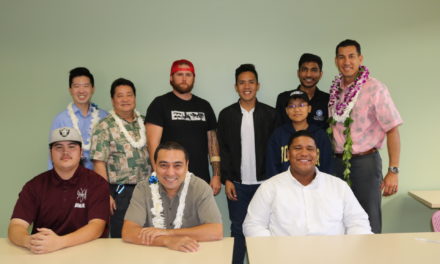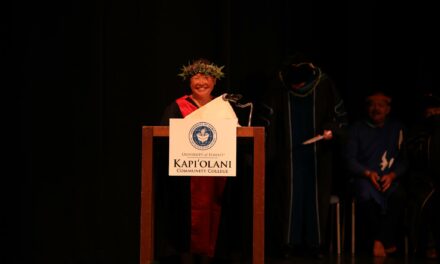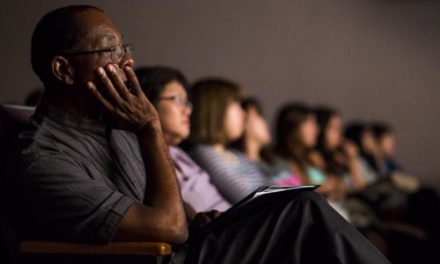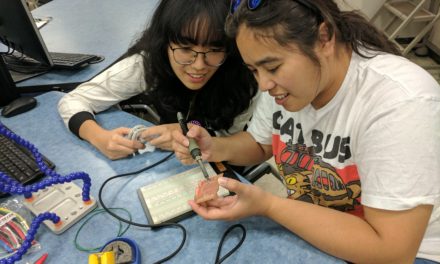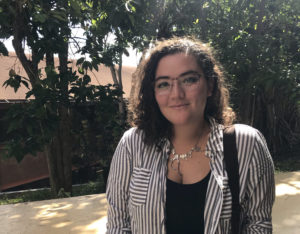By Estefania Magdalena | Staff Writer
Each year, approximately 5,000 students from all over the country apply for the national Critical Language Scholarship Program, which is an excellent opportunity to learn a new language and immerse themselves in a different cultural environment.
“If you have a smallest idea that you want to study abroad, I would say apply because unlike other study abroad programs this is fully covered scholarship and a study abroad program can be very expensive,” said Syejeong Kim, a CLS program officer in an informative Zoom session last week. “… So I say why not try and if you are accepted then you can choose to go or not go. There is nothing to lose. … If they get in, it’s a great opportunity to explore how people live overseas.”
CLS is a fully funded scholarship that encourages American students from 48 states and Puerto Rico to travel during a summer for eight weeks to an intensive course to learn one of the 15 languages that can be chosen. Of those 15 languages, nine do not require any prior knowledge, so students at a beginner level can also apply. The only four languages that require to have previously knowledge are Chinese, Japanese, Portuguese, and Russian.
“In Hawai‘i there are many students that know Japanese even in high school,” Kim said. “For those students we can make exceptions if they have previous studies or they studied informally, like learning from their families.”
There are currently no participants who are KapCC or Hawai’i students, so Kim said it would be great to encourage students to apply, as it is a government-funded program. The deadline to apply is Nov. 17.
“We want more students to apply from Hawaiʻi for sure,” Kim said. “Last year I am not sure If we even get an application from KapCC, that’s why we would love to get more students to apply and win the scholarship.”
The program is a good opportunity for college students because of the fact that other scholarships have a lot of requirements like being a graduate student. Kim said that she thinks that for community college’s students investing a full summer can be hard, considering that the majority might have part-time jobs to make money or many courses to take, but that there are benefits because it is a fully funded scholarship.
Courses generally start in June or August, and students travel in groups. The course is intensive as students must study 20 hours a week. Since the scholarship is fully funded, there are no expenses that students need to worry about. The reason why it is all paid is because the government wants to ensure that students will not have other economic concerns than studying when traveling.
“The goal of the program is to get significant language skills in the short period of time so we do need students to focus on learning the language and culture,” Kim said. “We are looking for students interested in learning a new language and culture, but we do ask students to think about why they need the language and cultural skills specially or a career in the future.”
There are two housing options, although students cannot choose between one or the other. Students can live with a local host family or they can live in a dormitory with roommates and receive visits from a host family on weekends. Another advantage is that the program also covers meals and groups of students are assigned with the same type of housing.
Bridget O’Connor, an alumna of the program, traveled to Japan last year to study for 8 weeks. During her stay, she lived in a dormitory with other students that traveled with her with the same purpose, and they were visited by a host family during the weekends for a better cultural immersion.
O’Connor, who also appeared in the Zoom call to speak about her experience, said that her motivation to apply for CLS was wanting to improve her Japanese. She also studies Computing Science in California, so she said it was hard for her to find enough time to study Japanese in her free time. The fact that the CLS program was during the summer and that it was fully funded encouraged her to apply.
“One of the parts I really like of the program is the fact that it is an immersive intensive program,” O’Connor said. “So you are only there for eight weeks, but I get a lot of language gains on those weeks. You are expected to speak only Japanese every day and that helps to improve quickly and become a lot more confident, even if you are a little bit shy or not as comfortable as speaking your language.”
The requirements to apply are to be enrolled in a U.S. accredited institution and to be an actual full-time student. Kim said that they can make exceptions with part-time students, if students inform the Officer’s Program, but that they will make sure that their intention is to pursue a degree after the course. It is also required to be 18 or older at the time that the program starts. Students have to be U.S. nationals and there is no GPA requirement. Kim said that the program is competitive because they have 550 spots every year for the nation and only 10% are picked.
“We want to know what plans do students have in their application on how to continue with language learning and often students find different resources to continue to practice language, and also stay in touch with people they met on the program like their host families and students partners,” Kim said. “Also they form really strong networking.”
This past summer year due to the Covid-19 worldwide pandemic, the students did not travel but the program was developed virtually via Zoom. Kim said the results were successful.
“We had cultural classes over Zoom, which were fantastically well,” Kim said. “And we also have students as language partners, who are college students overseas in the host countries, to talk to one another regularly. Those activities really help students to get language proficiency.”
It is not yet confirmed if students will be able to travel physically in the summer of 2021, but the program is preparing for either travel or virtual learning.
The application for CLS can be filled out here, and it must be sent online. An essay is required, so it is highly recommended that students read the tips that are suggested on the website of CLS. The semi-finalists will be notified in January and the finalists will be notified in March.
Brandon Marc Higa, the director for Resource Development, is the CLS’s advisor at KapCC. His function is to help students in case they have doubts, or need help with their applications. Marc Higa is an Alumnus that has participated before in the program and he can be contacted at higabran@hawaii.edu. For more information, it is also possible to contact Syejeong Kim at skim@americancouncils.org.



